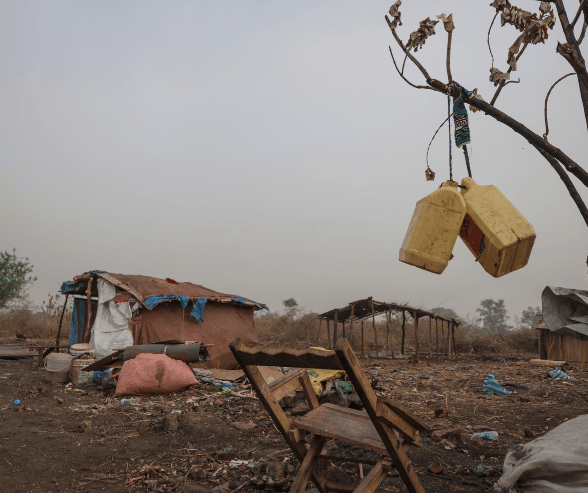In 2025, several countries face challenges contributing to lower average IQ scores. Nepal leads the list with an average IQ of 42.99 and a population of 30.8 million, while Liberia and Sierra Leone follow closely with averages of 45.07 (5.41M population) and 45.10 (8.80M population), respectively.
These figures are often linked to factors such as limited access to education and healthcare, historical conflicts, and socio-economic conditions, which significantly impact cognitive development.
This analysis also explores why IQ disparities matter on a global scale. Let us get straight to it!
List of Countries Who Has The Lowest IQ In The World Of 2025
Here is a list of the top 10 countries in a nutshell with the lowest IQ, along with their literacy rates and population:
| S.No. | Country | Average IQ | Population | Literacy Rate |
|---|---|---|---|---|
| 1. | Nepal | 42.99 | 30.8M | 64.66% |
| 2. | Liberia | 45.07 | 5.41M | 47.62% |
| 3. | Sierra Leone | 45.10 | 8.80M | 48.51% |
| 4. | Guatemala | 47.73 | 18.09M | 79.08% |
| 5. | The Gambia | 52.89 | 2.77M | – |
| 6. | Nicaragua | 52.69 | 7.05M | 82.49% |
| 7. | Guinea | 53.48 | 14.20M | 30.49% |
| 8. | Ghana | 58.16 | 34.13M | 76.60% |
| 9. | Ivory Coast | 59.31 | 28.90M | 43.29% |
| 10. | South Sudan | 59.45 | 11.08M | 32.01% |
Top 10 Countries Who Has The Lowest IQ In The World
Let’s look at the countries with the lowest IQs in the world in detail.
1. Nepal – 42.99
Located at the base of the Himalayas in South Asia, Nepal is known for its breathtaking landscapes and the world’s tallest peak, Mount Everest. However, this landlocked country faces various challenges, including extreme weather conditions and limited access to essential resources.

The lack of proper nutrition from an early age hinders children’s educational opportunities, resulting in an average IQ of 42.99, significantly below the global average of 82.03.
2. Liberia – 45.07
Liberia’s low IQ levels can be attributed to several factors, including historical challenges and socio-economic conditions. One significant factor is the prolonged civil war the country faced, which lasted from 1989 to 2003.
The war had devastating effects on Liberia’s economy and infrastructure, leading to a breakdown in essential services such as healthcare and education. Limited access to education and healthcare services can harm cognitive development, potentially contributing to lower IQ scores.
3. Sierra Leone – 45.10
Sierra Leone’s low IQ levels depend on several factors, including limited access to education, healthcare, and proper nutrition. The country has faced significant challenges, including a decade-long civil war that ended in 2002 and an Ebola outbreak in 2014-2016, which disrupted essential services and had a detrimental impact on the overall development of its population.
The civil war in Sierra Leone severely affected the education system, with schools being destroyed and teachers displaced. Many children could not receive a proper education during this period, leading to a lack of cognitive development and lower IQ scores.
4. Guatemala – 47.73
Despite its rich history and cultural heritage, Guatemala faces significant social and economic challenges. It has a low IQ level primarily due to a lack of access to healthcare and quality education, along with high poverty rates. The country faces significant developmental challenges, including poverty and inequality, which directly impact the cognitive abilities of its population.

Many children in Guatemala do not have the opportunity to attend school or receive a proper education. This lack of education hinders cognitive development and can result in lower IQ scores.
5. The Gambia – 52.89
The Gambia is a small West African country with a population of around 2.8 million. One factor influencing IQ levels in The Gambia is the overall socio-economic conditions. The country faces significant challenges in poverty, lack of quality education, and healthcare disparities. These factors can impact cognitive development and, consequently, IQ scores. Poverty often restricts access to resources necessary for optimal brain development, such as nutritious food, stimulating learning environments, and healthcare services.
Another aspect that may contribute to lower IQ levels in The Gambia is the education system. However, The Gambia faces challenges related to education, including limited resources, high dropout rates, and a lack of well-trained teachers.
6. Nicaragua – 52.69
Nicaragua is a Central American country with a population of around 7 million people. Despite its natural beauty and rich cultural heritage, the country faces significant challenges in economic development and social inequality. Poverty is an important factor that influences IQ levels in Nicaragua.
The country has a high poverty rate, and individuals living in poverty often face limited access to resources necessary for cognitive development. Limited access to education and healthcare also contributes to low IQ levels. Nicaragua faces educational challenges, including a lack of infrastructure, inadequate resources, and a shortage of qualified teachers.
7. Guinea – 53.48
Guinea is one of the poorest countries in the world, with a GDP per capita of just $1,210. Poverty can lead to several problems that can impact intelligence, such as malnutrition, poor healthcare, and lack of access to education. Malnutrition is a significant problem in Guinea, with over 40% of children under the age of five being underweight.

Lack of access to education is another major problem in Guinea. The country has one of the lowest literacy rates in the world, with only 40% of adults being able to read and write. This lack of access to education can impact intelligence, as it limits the opportunities for people to learn and develop their cognitive skills.
8. Ghana – 58.16
Ghana is a West African country with a population of around 34 million people. Despite ranking as one of the fastest-growing economies in the world, the country still faces significant challenges in education and healthcare. Poverty is a major problem in Ghana, and it can have a profound impact on a child’s development.
Ghana also has a high rate of maternal and child mortality, and it has a high prevalence of diseases such as malaria, HIV/AIDS, and tuberculosis. These diseases can all hurt a child’s cognitive development. Ghana’s education system is not as well-funded as many other countries, leading to fewer teachers, fewer schools, and fewer resources available to students. As a result, many children in Ghana do not receive a quality education, which can lead to lower IQ scores.
9. Ivory Coast – 59.31
Ivory Coast in West Africa is known for its rich cultural heritage and diverse wildlife. However, the country still faces significant challenges in economic development and social inequality. According to the World Bank, 40% of the population of Ivory Coast lives below the national poverty line. Another reason for Ivory Coast’s low IQ is its high illiteracy rate. According to UNESCO, 44% of adults on the Ivory Coast are illiterate. Illiteracy can make it difficult for people to learn new things and participate in society, which can contribute to lower IQ scores.
Ivory Coast also has a high rate of child mortality. According to UNICEF, the under-5 mortality rate in Ivory Coast is 79 deaths per 1,000 live births. Child mortality can lead to brain damage and other developmental problems, both of which can contribute to lower IQ scores.
10. South Sudan – 59.45
South Sudan is a young nation that gained independence from Sudan in 2011. The country faces significant challenges in terms of economic development and social inequality. South Sudan struggles with poverty, war, lack of education, and malnutrition. An alarming 83% of the population lives below the national poverty line, while ongoing civil conflict since 2011 has resulted in widespread death and destruction.

According to UNESCO, educational opportunities are severely limited, with only 27% of adults being literate. Additionally, malnutrition affects 20% of children under the age of five, leading to developmental delays. These multifaceted challenges contribute to lower IQ scores among the population.
The Significance of IQ in National Success
Experts believe that a healthy lifestyle, including a balanced diet and regular exercise, plays a crucial role in a nation’s cognitive development and overall success. These factors contribute to higher intelligence levels, providing the necessary nutrients and mental stimulation for optimal brain function.

When it comes to countries with high average IQs, Japan, China, and Singapore stand out due to their exceptional educational standards and prestigious academic achievements. However, some countries have lower IQs, which can be attributed to economic disputes, social inequalities, or inadequate educational systems.
Factors Affecting IQ Level
IQ is a measure of a person’s cognitive abilities. It is controversial, but studies have shown that IQ rates vary among different countries. Several aspects contribute to these differences:

1. Education System
The quality of education a country provides plays a significant role in the IQ rate of its citizens. Education enhances cognitive abilities and provides individuals with the necessary skills to excel in life.
2. Nutrition and Health
Good nutrition and health can positively impact cognitive abilities. Malnutrition and diseases can impair brain development, leading to lower IQ rates.
3. Economic Status
A country’s economic status affects the quality of life of its citizens. Countries with higher GDP per capita tend to have better living conditions, positively impacting cognitive abilities. Higher economic status also translates to better education and healthcare systems.
4. Genetics
Genetics plays a role in determining IQ rates. However, it is a controversial topic, and studies have not shown conclusive evidence linking genetics to IQ rates.
5. Cultural Factors
Culture can also influence IQ rates. Different cultures have different attitudes toward education and cognitive development. Countries that place a high value on education and intellectual pursuits used to have higher IQ rates.
Related Reads:
Conclusion- Who Has The Lowest IQ In The World
The data for 2025 reveals that countries with the lowest average IQs, such as Nepal (IQ 42.99, 64.66% literacy) and Liberia (IQ 45.07, 47.62% literacy), frequently contend with systemic issues.
It reveals a clear pattern that countries with the lowest average IQs also face high poverty rates, poor health infrastructure, and inadequate education systems.
These figures are not just numbers; they reflect real developmental obstacles that impact millions. Bridging this IQ gap globally requires urgent investment in education, nutrition, and healthcare, ensuring no nation is left intellectually behind in an increasingly knowledge-driven world.
FAQs- Who Has The Lowest IQ In The World
Which Countries have the highest IQ in the world?
Hongkong, Singapore, Japan, and China have the highest IQ in the world.
What is the highest IQ ever recorded?
Adragon De Mello projected an IQ of 400.
